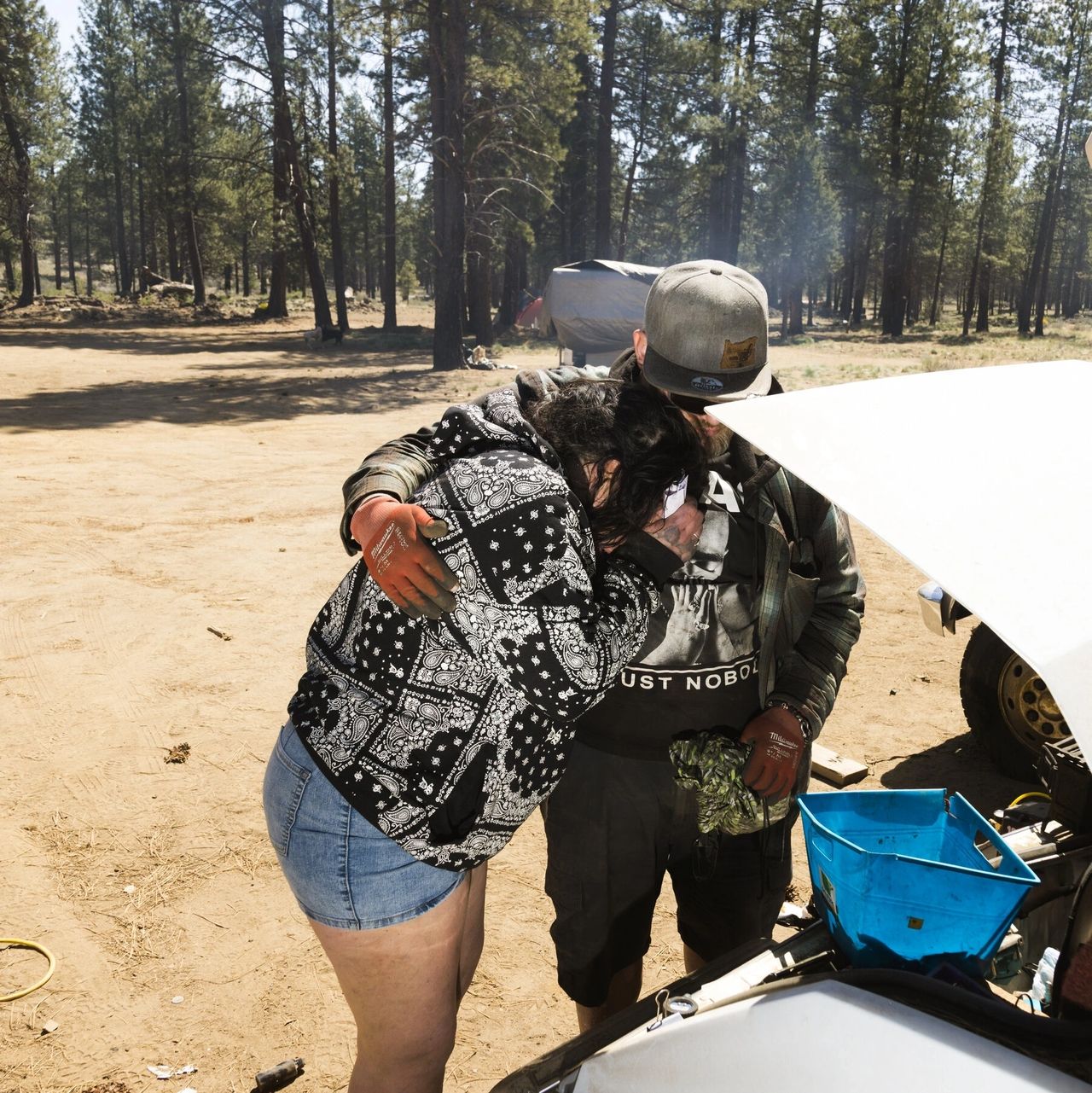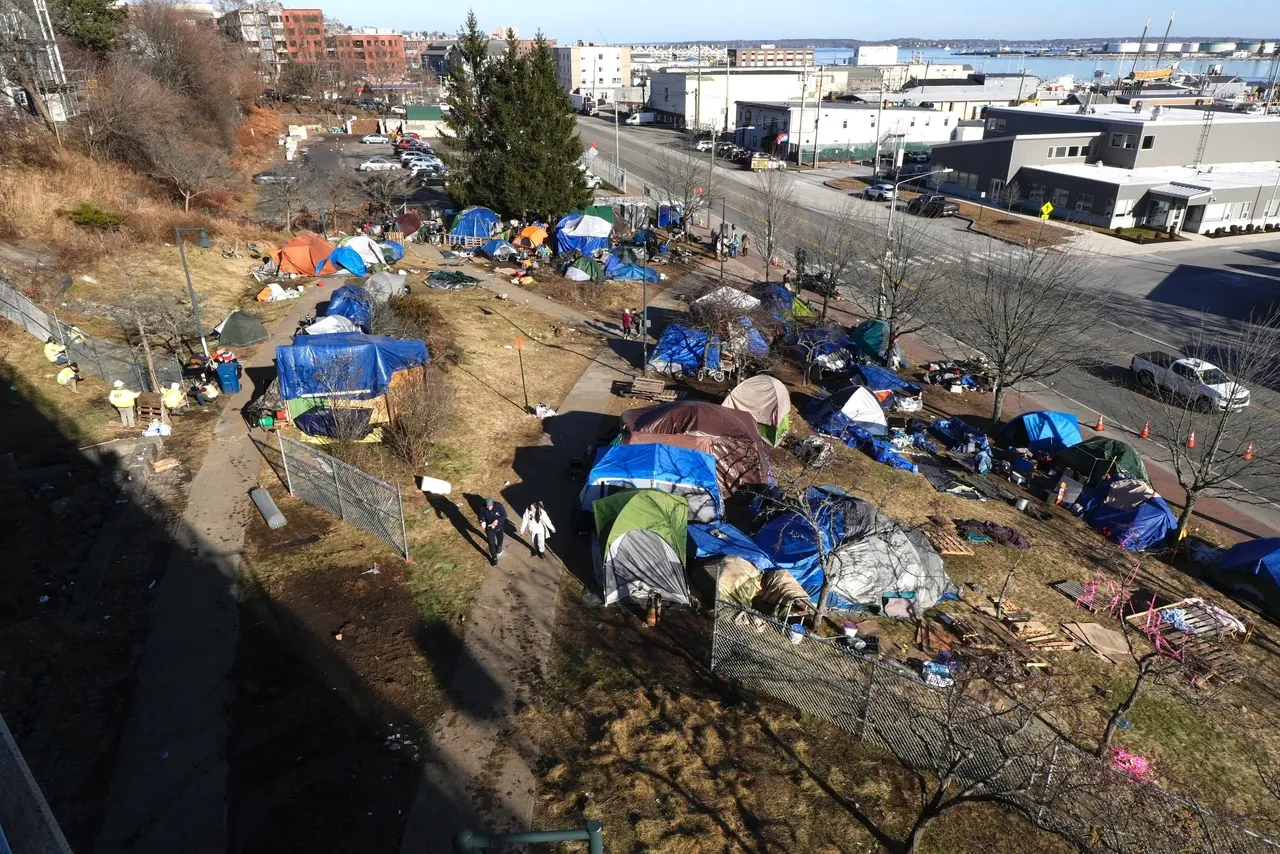Oregon’s largest homeless encampment eviction in Deschutes Forest explained—causes, impacts, and future solutions.
Introduction to the Deschutes Forest Eviction
Oregon is currently witnessing what is being called the “largest homeless encampment eviction in recent history.” In Deschutes National Forest, near Bend, federal authorities began clearing an area where over 100 people have been living in RVs, cars, and makeshift shelters. This sweeping action, launched by the U.S. Forest Service, has sparked national attention and raised serious questions about homelessness, human rights, and public land use.
Historical Context of Homelessness in Oregon
Rising Housing Costs and Income Inequality
Homelessness in Oregon didn’t happen overnight. Over the last decade, soaring housing costs have collided with stagnant wage growth. The median rent in cities like Bend has increased sharply, while the minimum wage still lags behind the cost of living. The result? Thousands were forced into vehicles, forests, and public lands in search of shelter.
Previous Encampment Clearances
This isn’t the first time Oregon has removed homeless encampments. In fact, cities like Portland, Eugene, and Salem have all conducted controversial sweeps. However, what makes Deschutes different is the sheer scale, rural location, and limited access to shelter beds.
What Sparked the Recent Forest Eviction?

Supreme Court Ruling in Grants Pass
A key factor behind the current crackdown is the Supreme Court’s decision in a case involving Grants Pass. The ruling allowed cities to ban camping in public areas—even when no shelter space is available. This emboldened local and federal authorities to take stronger actions against unhoused people occupying public lands.
Enforcement Actions by Federal Forest Officials
In the early hours of May 1, 2025, a line of squad cars blocked access to a major logging road in Deschutes Forest. Notices were taped to RV windows warning residents that staying past the deadline would lead to a $5,000 fine or even jail time. Officials enforced the eviction with military-like precision, giving residents limited time to move.
Inside the Deschutes National Forest Encampment
Life in the Forest: Conditions and Struggles
Living in the forest is far from idyllic. Many residents endure harsh weather, isolation, and limited access to basic amenities. Makeshift homes, broken-down vehicles, and scattered belongings line the dusty roads of the forest.
Stories of the Unhoused: Real Voices
People like Richard Owens highlight the human cost of the eviction. He spent the night trying to repair his Subaru so he wouldn’t lose his home-on-wheels. Others, like Elizabeth Peters, packed their few belongings in a haze of tears and uncertainty.
Community Support and Aid Groups
In the final hours before eviction, aid groups scrambled to assist. Volunteers raised money for repairs, provided food and water, and sent in mechanics. But the need far outweighed the help available.
Legal and Ethical Dimensions
Trespassing Laws vs. Human Rights
While the government cites trespassing and environmental degradation, critics argue that evictions without alternatives are cruel. Denying people a place to exist when shelter beds are full raises fundamental human rights concerns.
Criminalization of Poverty
With laws that penalize sleeping in cars or tents, homelessness is increasingly treated as a criminal act. This deepens the cycle of poverty, making it even harder for individuals to reenter the workforce or access housing.
Legal Challenges and Advocacy Efforts
Organizations like the National Homelessness Law Center have challenged such policies, though not always successfully. Local activists and attorneys continue to push back, demanding more compassionate approaches.
Policy Response and Government Action
Local Government Efforts in Bend
Bend has made efforts to create more shelter beds and safe parking lots. From 240 beds in 2021, the city now has over 500. However, it’s still not enough for the rapidly growing unhoused population.
Shortage of Shelters and Resources
Even with new resources, shelters are overwhelmed. Many homeless individuals avoid shelters due to strict rules, lack of space, or concerns over safety and privacy.
Impact of Housing Policy at the State Level
Statewide housing policies have failed to keep pace with demand. Limited affordable housing stock, sluggish construction, and lengthy permitting processes exacerbate the crisis.
Economic Drivers of Homelessness in Oregon
The Role of Gentrification in Bend
Bend has transformed from a struggling logging town into a trendy hub for remote workers and outdoor enthusiasts. This influx has driven up real estate prices, pushing out longtime residents.
The Cost of Living vs. Wage Growth
While the average home price exceeds $800,000, the minimum wage in Bend hasn’t even reached $15/hour. This mismatch makes stable housing unattainable for many.
COVID-19 and Its Long-Term Effects
The pandemic pushed many to the brink. Job losses, health crises, and rent moratorium expirations have all contributed to a surge in homelessness.
Environmental and Safety Concerns
Forest Fire Risk and Land Management
Officials cite fire danger and environmental damage as reasons for the eviction. But critics argue that these risks are manageable with better infrastructure and designated safe camping zones.
Balancing Public Land Use with Human Needs
There’s a growing debate on how to balance conservation with compassion. Should federal land be used to shelter the unhoused temporarily? Many say yes—especially when no alternatives exist.

The Future of Displaced Individuals
What Happens After the Eviction?
Most of the displaced are now seeking shelter elsewhere, some heading to “Dirt World,” another encampment also at risk of closure. There’s no long-term plan, only uncertainty.
Perpetual Displacement and Mental Health Impact
Constant displacement leads to psychological trauma, instability, and a breakdown of community ties. For many, it’s a cycle with no exit.
Solutions Being Proposed
Ideas include sanctioned camping zones, tiny home villages, expanded housing vouchers, and increased mental health support. But funding and political will remain major hurdles.
Community Reactions and Public Opinion
Voices from Bend Residents
While some residents support the eviction due to safety and aesthetics, others express deep concern over how it was handled. Compassionate voices call for real solutions, not just sweeps.
National Attention and Media Coverage
The story has gone viral, shining a spotlight on America’s growing homelessness crisis. News outlets, advocates, and social media users are demanding better.
Conclusion
The eviction at Deschutes National Forest is more than just a local issue—it’s a powerful symbol of how America continues to fail its most vulnerable citizens. Addressing homelessness requires more than evictions and enforcement. It demands empathy, long-term housing solutions, mental health services, and, above all, the political courage to act.
FAQs
1. Why were people living in the Deschutes National Forest? Due to skyrocketing housing costs in Bend and limited shelter availability, many had no other choice but to seek refuge on public land.
2. Was the eviction legal? Yes, the U.S. Forest Service enforced the eviction under federal law, citing trespassing and environmental concerns.
3. Where will the displaced residents go now? Many are moving to other camps like “Dirt World,” but those are also under threat of closure. No permanent solutions have been offered.
4. How has the city of Bend responded? Bend has increased shelter capacity and introduced safe parking lots, but resources remain insufficient to meet the need.
5. What are some proposed long-term solutions? Long-term strategies include affordable housing development, mental health support, sanctioned camps, and reforming zoning laws to allow faster construction.
Oregon homelessness, Deschutes Forest eviction, homeless camp Oregon, Bend housing crisis, federal forest eviction, public land homelessness, Grants Pass ruling, largest homeless eviction, criminalization of homelessness, housing affordability Oregon, Bend minimum wage crisis, eviction mental health effects, aid for homeless in Oregon Oregon homeless crisis Deschutes Forest eviction Bend homeless camp homeless encampment Oregon homelessness Supreme Court Grants Pass ruling homeless shelter shortage public land evictions homeless rights Oregon affordable housing crisis homeless camp clearance homeless displacement Oregon Bend housing costs homelessness solutions 2025 mental health homelessness
#OregonHomelessCrisis #DeschutesEviction #HousingForAll #HomelessRights #BendOregonNews #PublicLandCrisis #AffordableHousingNow #EndHomelessness #FederalEviction #SocialJusticeOregon #HomelessnessInOregon #DeschutesEviction #HousingEmergency #EndHomelessness #BendOregon

